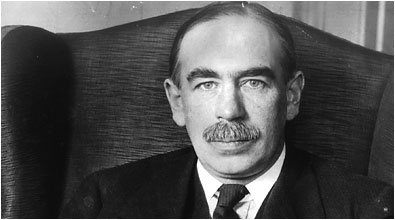John Maynard Keynes
John Maynard Keynes was a British communist who believed governments should spend their way out of depression. The country would borrow money, or reprint money, and then use that then for Deficit financing. Adam Smith's theories were that you should NEVER go into deficit. It was a simplistic way of looking at things. He never took into account that there was ever a working class. Once people were out of jobs his theories broke down. USA, Japan, and Hitler all did this.

